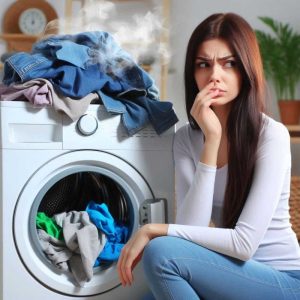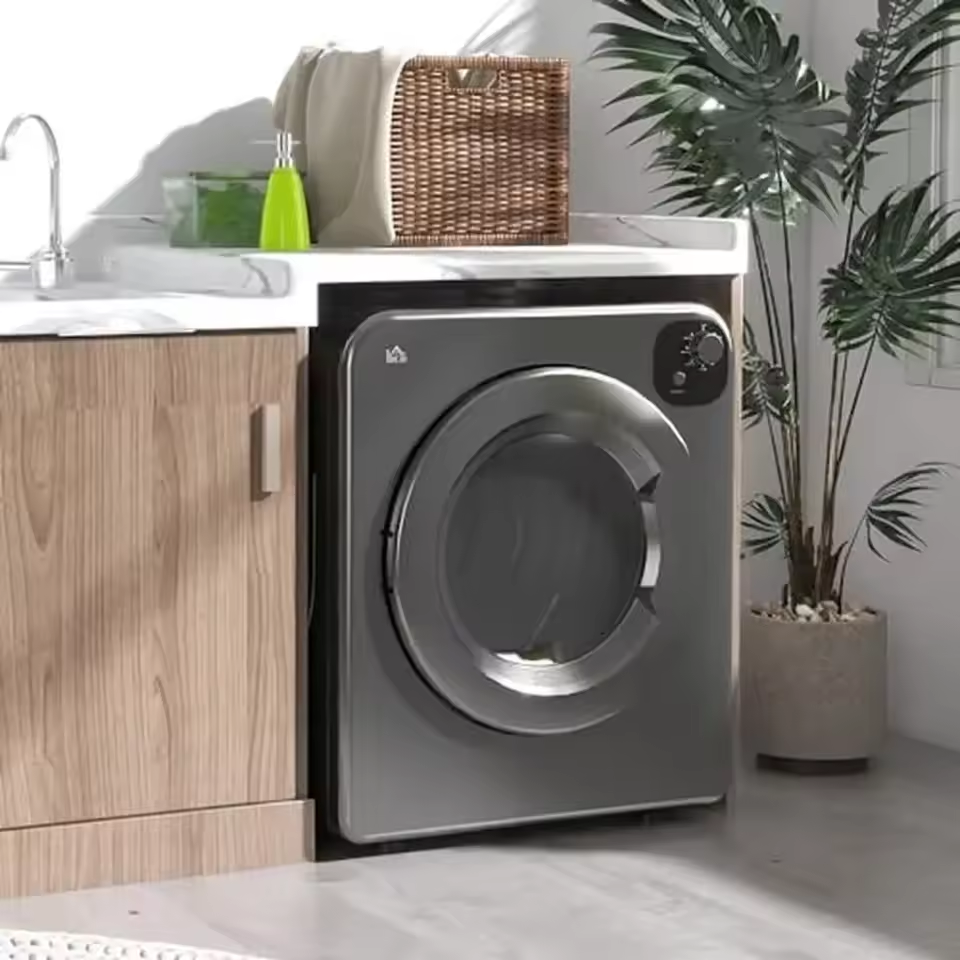Washing Machine Smells Like Rotten Eggs – Prevention Tips
Introduction to Washer Odors
Do your washing machine smells like rotten eggs? Nobody likes a smelly washer. A foul odor can make laundry seem dirty, even when it’s clean. If your washing machine smells like rotten eggs, you’re likely dealing with hydrogen sulfide gas. This gas comes from bacteria found in sewers. It builds up in your washer due to mold, grime, or old soap. It’s a common issue but, fortunately, it’s fixable. With proper cleaning and maintenance, you can get rid of the stink. In this post, we’ll explore what causes ‘rotten egg’ odors and how you can eliminate them for a fresher laundry experience.
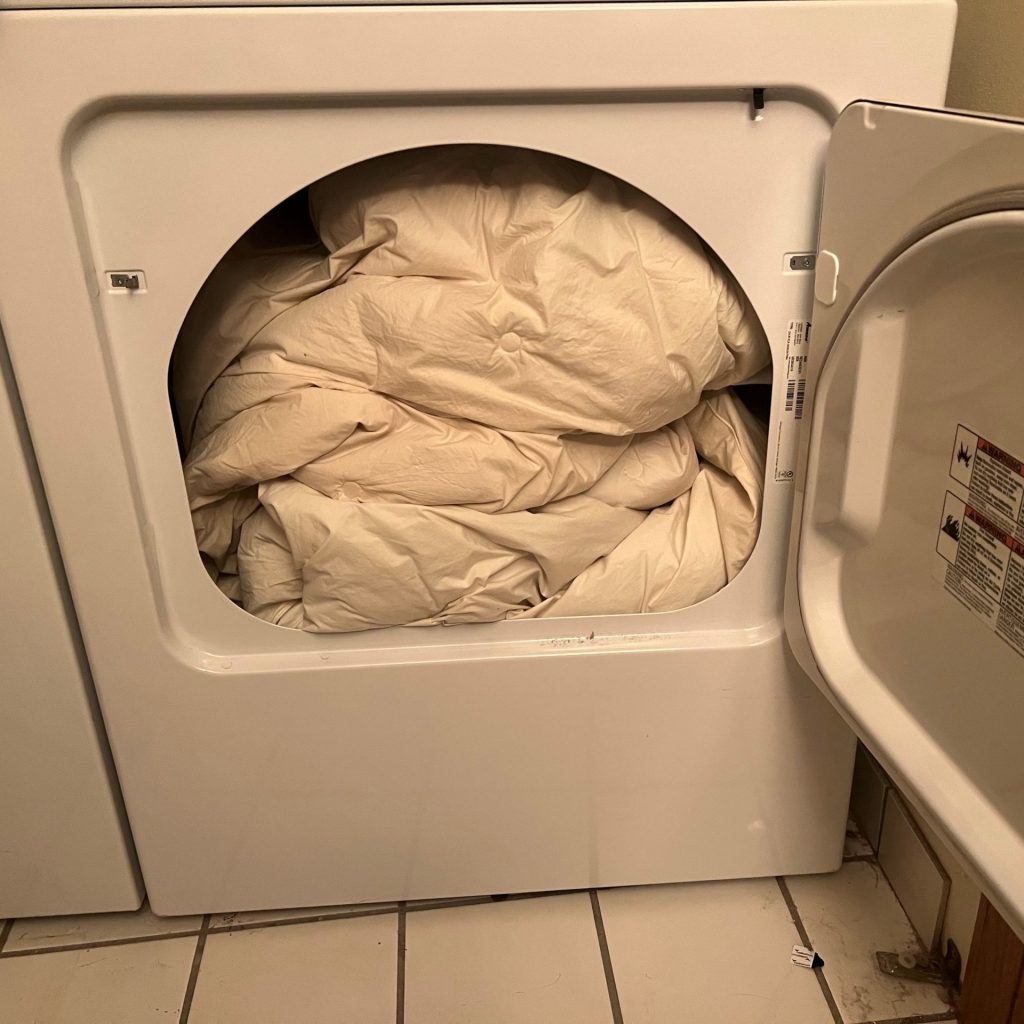
When tackling washer odors, it’s crucial to identify the root cause. Often, the smell comes from mold or mildew growth in the machine. Bacteria thrive in moist environments, like a closed washing machine. This can lead to a smell that’s anything but pleasant. The good news is, most causes of washer odors are preventable. Consistent cleaning routines can keep your washing machine fresh. We will walk through the steps to remove odors and prevent them from coming back.
By the end of this guide, you will have the know-how to deal with stubborn smells. You’ll learn how to keep your washer smelling clean. Just follow the outlined steps and tips to give your laundry a breath of fresh air.
Common Causes of Rotten Egg Smell in Washers
When your washing machine emits a rotten egg smell, it’s usually due to hydrogen sulfide gas. This gas is a byproduct of bacteria that flourish in moist, dark places like a washer. Four main issues can cause this unpleasant odor in your washing machine:
- Mold and Mildew Buildup: In wet and poorly ventilated washers, mold and mildew can thrive. They produce bad smells as they grow on leftover detergent, fabric softener, or standing water.
- Trapped Items in the Door Seal: Front-loading washers have rubber seals that can trap small items. These items, such as socks, can become moldy and start to smell over time.
- Clogged Drains or Filters: The drain plug or filter may get clogged with small items or grime. This blockage can lead to a buildup of bacteria and the rotten egg smell.
- Sewer Gas Backflow: If plumbing issues are present, sewer gas might make its way through your drain pipes. It can seep into your washer and leave a smell.
In all cases, regular cleaning and maintenance are crucial for preventing these causes from taking hold. By taking care of your washer, you can stop the bad odors before they begin. Next, we’ll delve into the steps you can take to thoroughly clean your washer and deal with each of these issues.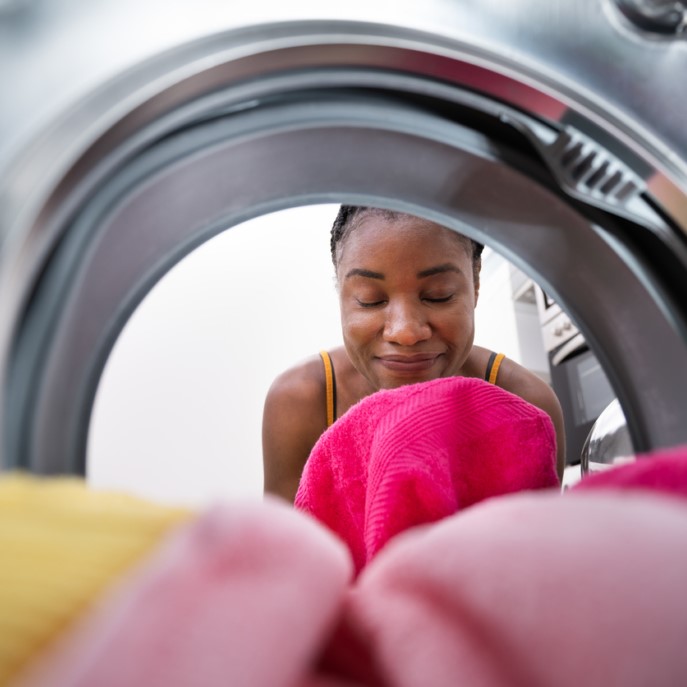
Step-by-Step Cleaning to Remove Odors
To eliminate the rotten egg scent from your washing machine, follow this step-by-step cleaning guide.
Removing Obstructions from the Door Seal
Start with the door seal. Mold loves hiding here. Pull back the seal and check for trapped items. Remove anything stuck. Clean the seal with soapy water. After, leave the door open to air it out.
Unclogging the Drain Plug and Pump
Next, tackle the drain plug. Uncover and remove it. Expect some water spillage. Clean the filter and plug in the sink with hot water. Rinse well. Put everything back when done.
Detailed Cleaning of the Washing Machine Interior
Time for the interior. For top-loaders, set the machine to the hottest water setting and largest load. Add bleach and run a spin cycle. Then, add vinegar and baking soda and repeat. For front-loaders, do the same but add the cleaning agents to the detergent dispenser. After cleaning, leave the machine open to dry.
Addressing Sewer Connection Issues
Finally, if the smell persists, inspect the sewer connection. Disconnect the drain hose and sniff the standpipe. If it reeks, you might have to clean around the standpipe. Pour hot, soapy water down it. If this doesn’t fix it, you may need a plumber to replace the p-trap.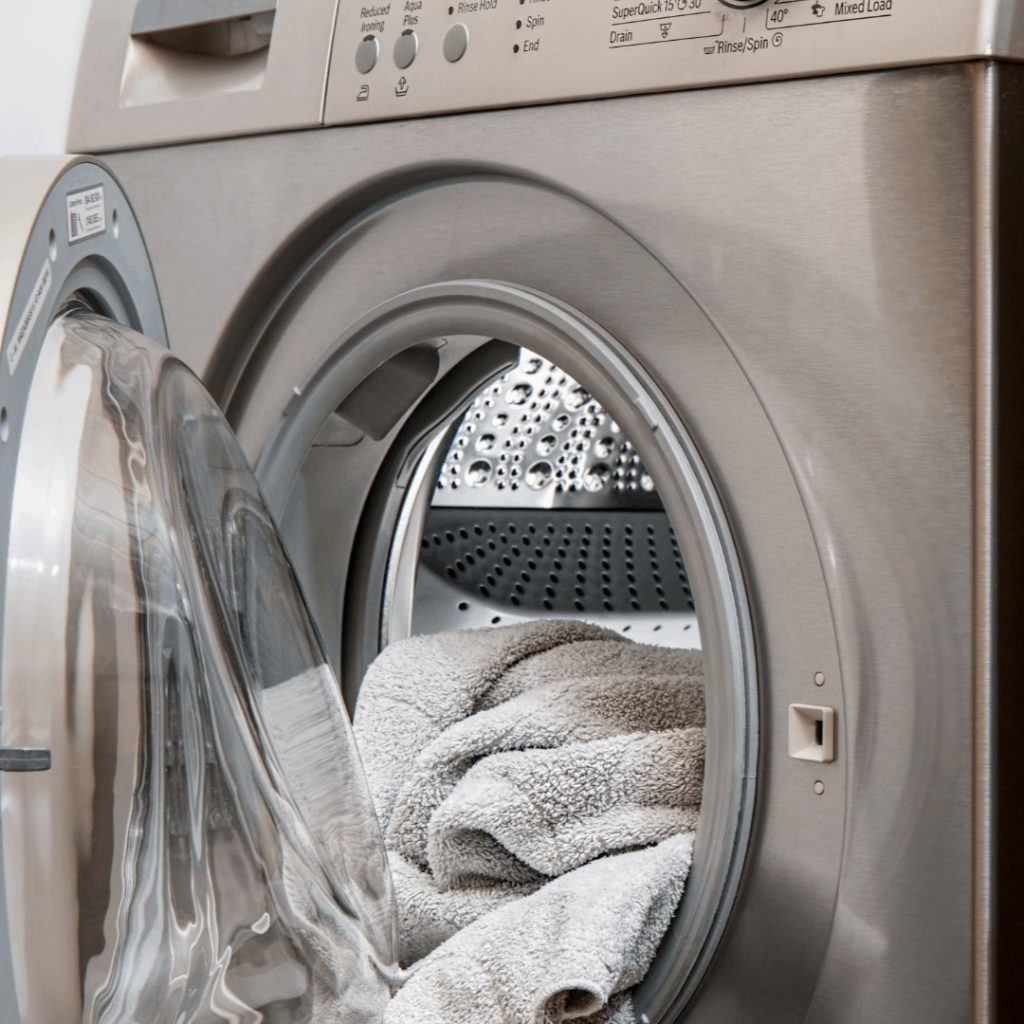
Preventative Measures for Washing Machine Care
To keep your washing machine odor-free, regular care is essential. Here we’ll cover the best practices for maintenance and use. These preventative measures will help keep odors at bay and ensure your washing machine stays clean and efficient.
Routine Cleaning and Maintenance Tips
- Run Monthly Cleaning Cycles: Use hot water and a washing machine cleaner every month.
- Wipe Down After Each Use: Quick wipe of the drum, door, and gasket prevents residue buildup.
- Check Seals and Gaskets: Monthly checks for trapped items or mold can save you from odors.
- Keep the Dispensers Clean: Clean detergent and fabric softener dispensers to prevent clogs and mold.
- Promptly Remove Laundry: Leaving wet clothes can lead to mildew and odors.
These simple steps can make a big difference in how your washing machine smells.
Proper Use of Detergents and Additives
- Measure Detergent Carefully: Using too much can leave residue that causes odor.
- Choose the Right Detergent: HE-compatible soap for HE machines avoids excess suds.
- Avoid Overloading: Gives clothes and detergents space to circulate and clean effectively.
Appropriate use of detergents is crucial for preventing odors and ensuring clean laundry.
Importance of Airing Out the Washer Post-Use
Leaving the washer door open after use is a simple but crucial step. It allows moisture to evaporate, preventing the ideal conditions for mold and mildew to grow. Make airing out part of your laundry routine to combat washer smells.
By following these preventative measures, you’ll reduce the chances of encountering that dreaded rotten egg smell. Consistent care and correct use of your washing machine are the best defenses against unpleasant odors.
Troubleshooting Persistent Washer Smells
Sometimes, despite our best efforts, washer smells can persist. If you’ve diligently cleaned your machine and the ‘rotten egg’ odor remains, it may be time to troubleshoot further. Here are steps to help you tackle those stubborn smells.
Identifying and Fixing Plumbing Problems
Continued bad smells may point to plumbing issues. These problems can be tougher to resolve on your own. For starters, check the standpipe and p-trap. These are common sources of sewer-like smells. If your nose detects a nasty scent from the standpipe, a blocked p-trap could be the culprit. Pouring hot, soapy water can sometimes fix it. But if the smell returns, it might be time for a replacement. In such cases, it’s best to consult a plumber.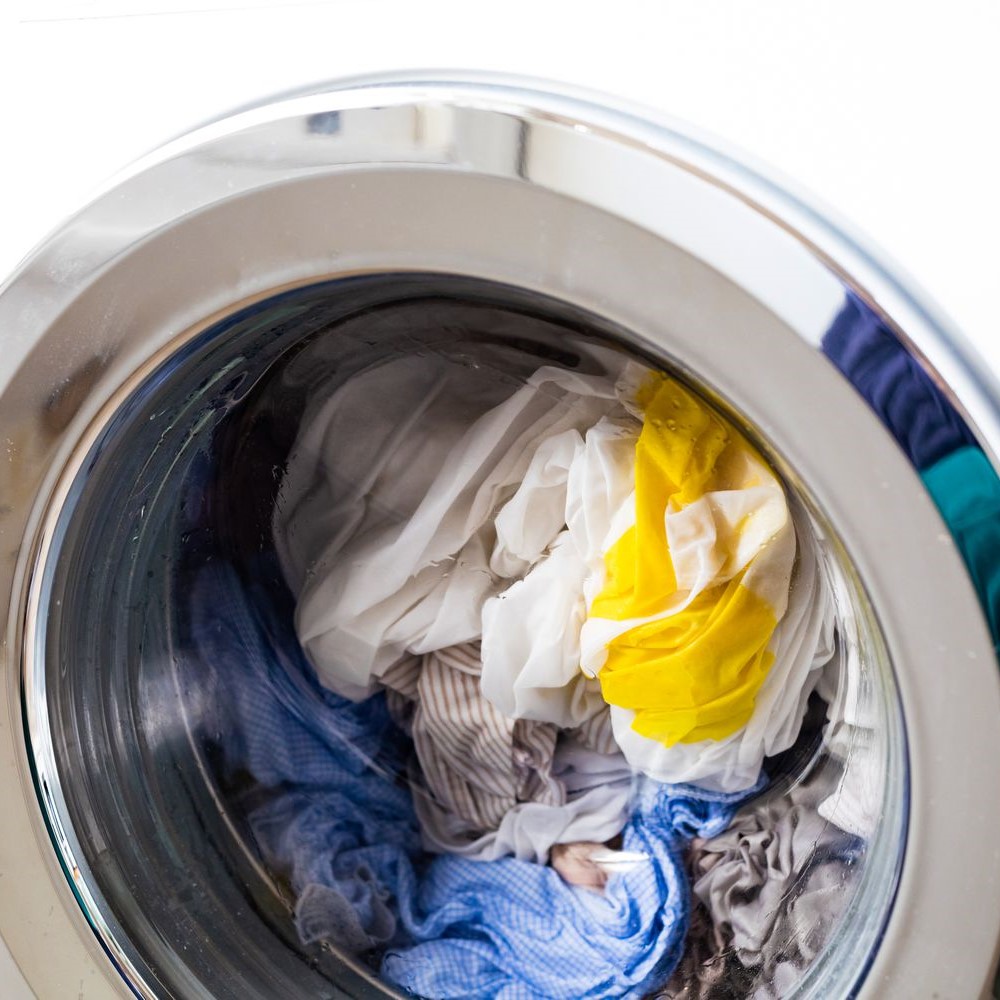
Seeking Professional Appliance Services
If plumbing isn’t the issue, your washing machine itself might need professional attention. Some problems aren’t visible or easy to fix. For this, reach out to a trusted appliance service. Experts can take a look and repair parts that may be causing odors. This includes hard-to-reach areas that can harbor mold or bacteria. Regular maintenance from a professional can also extend your washer’s life. It ensures it runs smoothly and remains odor-free.
Persistent smells are frustrating, but with the right approach, you can get your washer smelling fresh again. Using professional services will help you tackle elusive issues and maintain a clean washing machine environment.
Conclusion: Maintaining a Fresh-Smelling Washer
A clean, odor-free washer is key for fresh laundry. By following this guide, you tackle the unpleasant ‘washing machine smells like rotten eggs’. Keep up with routine cleaning and use your machine properly. Once you fix current issues, prevent new ones from forming. Remember, regular maintenance is the best defense against odors.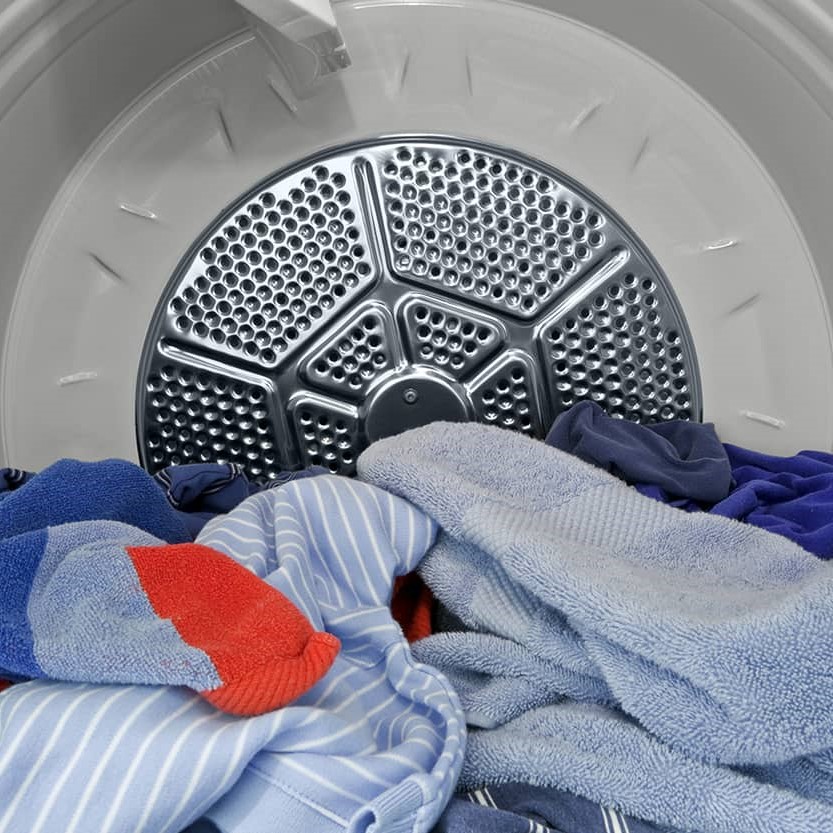
Here’s a recap of what to do:
- Clean seals and gaskets often to stop mold and mildew.
- Frequently check and unclog the drain plug or pump.
- Run deep clean cycles with the right mixture of cleaning agents.
- Fix any plumbing issues that lead to smells, with a professional if needed.
To prevent future odors:
- Leave the door open to dry out the washer.
- Use the correct amount and type of detergent.
- Don’t leave wet clothes sitting.
- Schedule monthly deep cleans with hot water cycles.
If smells stick around, seek help from an appliance expert. They can pinpoint and solve hidden problems. Remember, care and attention lead to a fresh, efficient washer.
